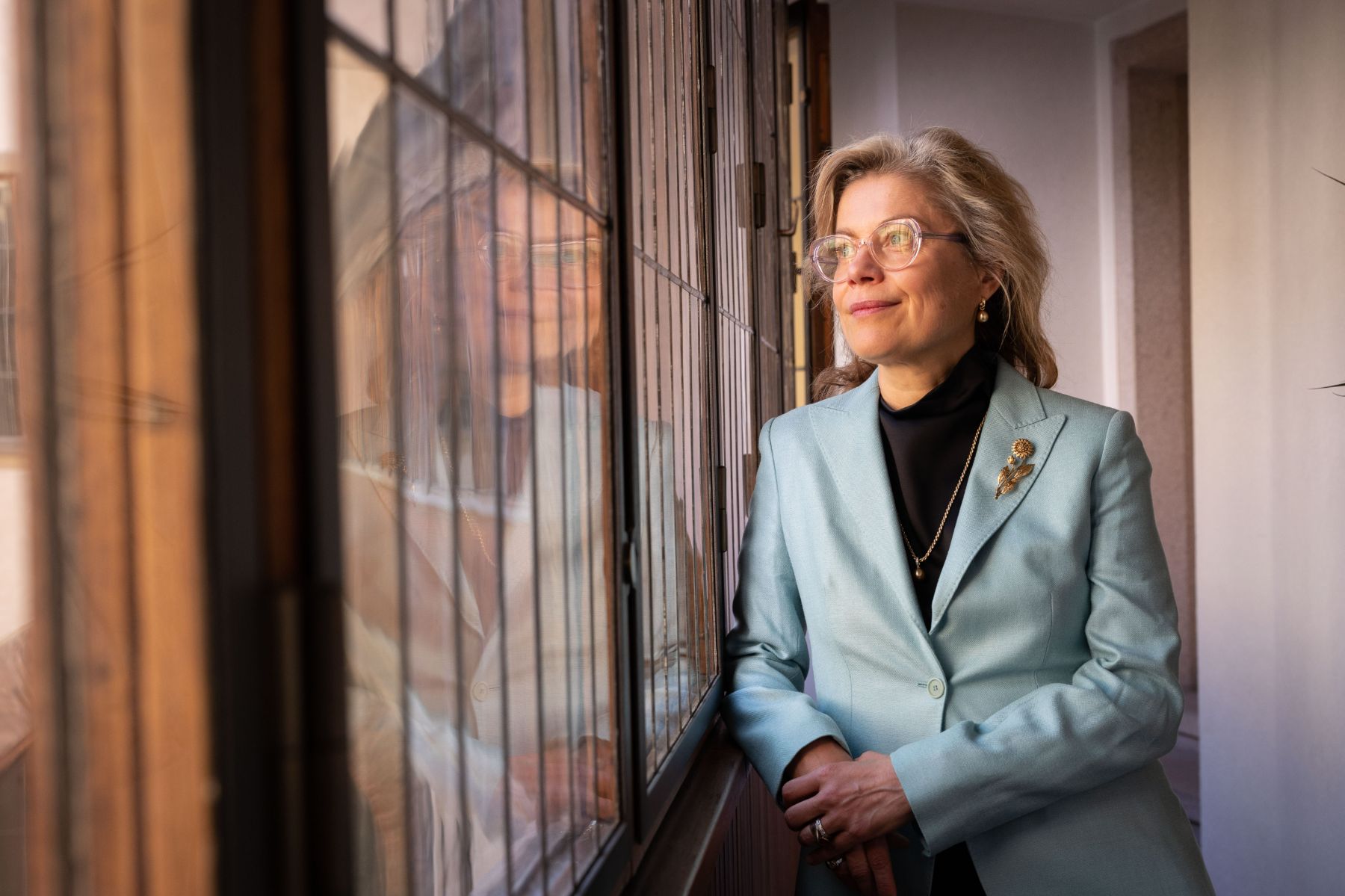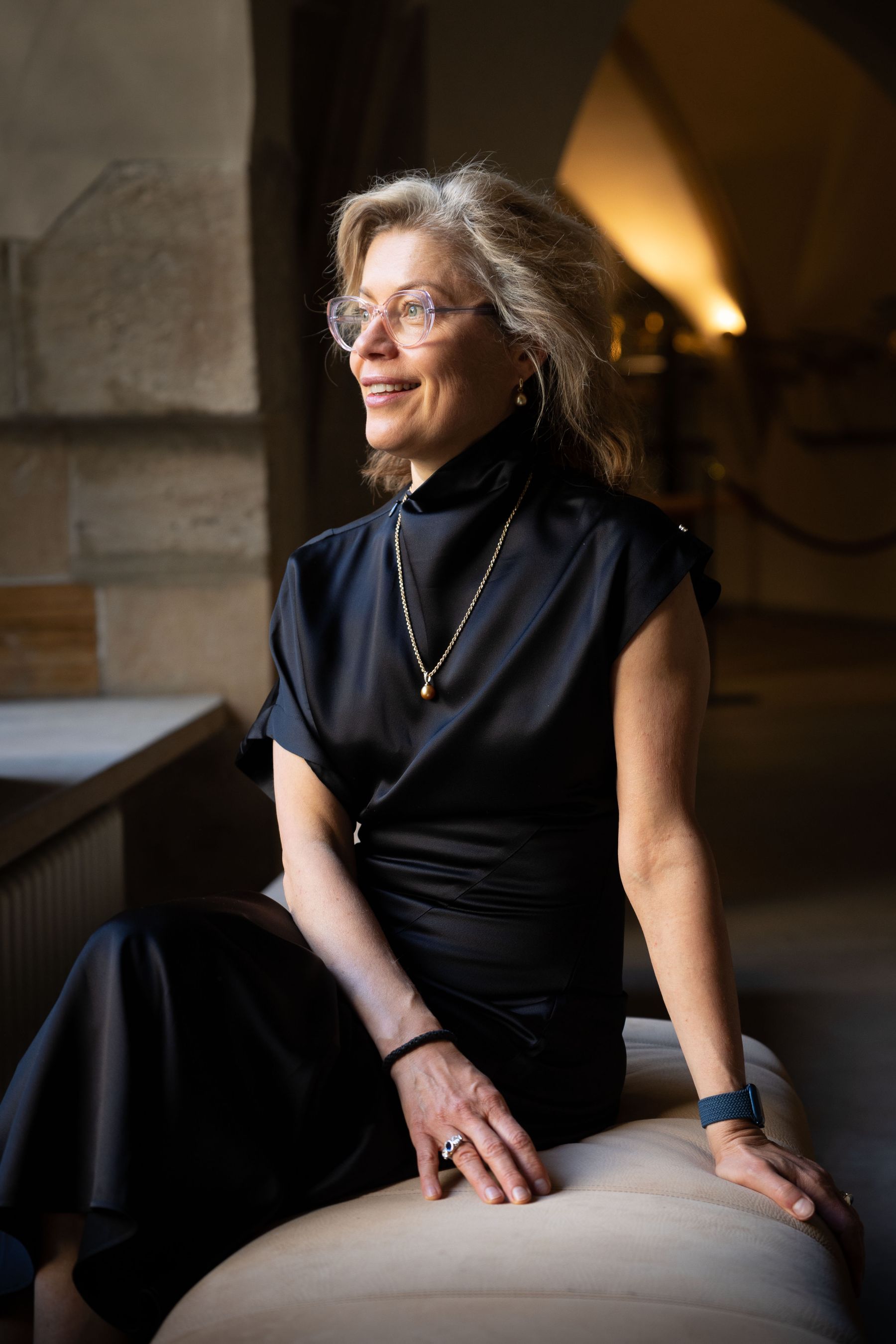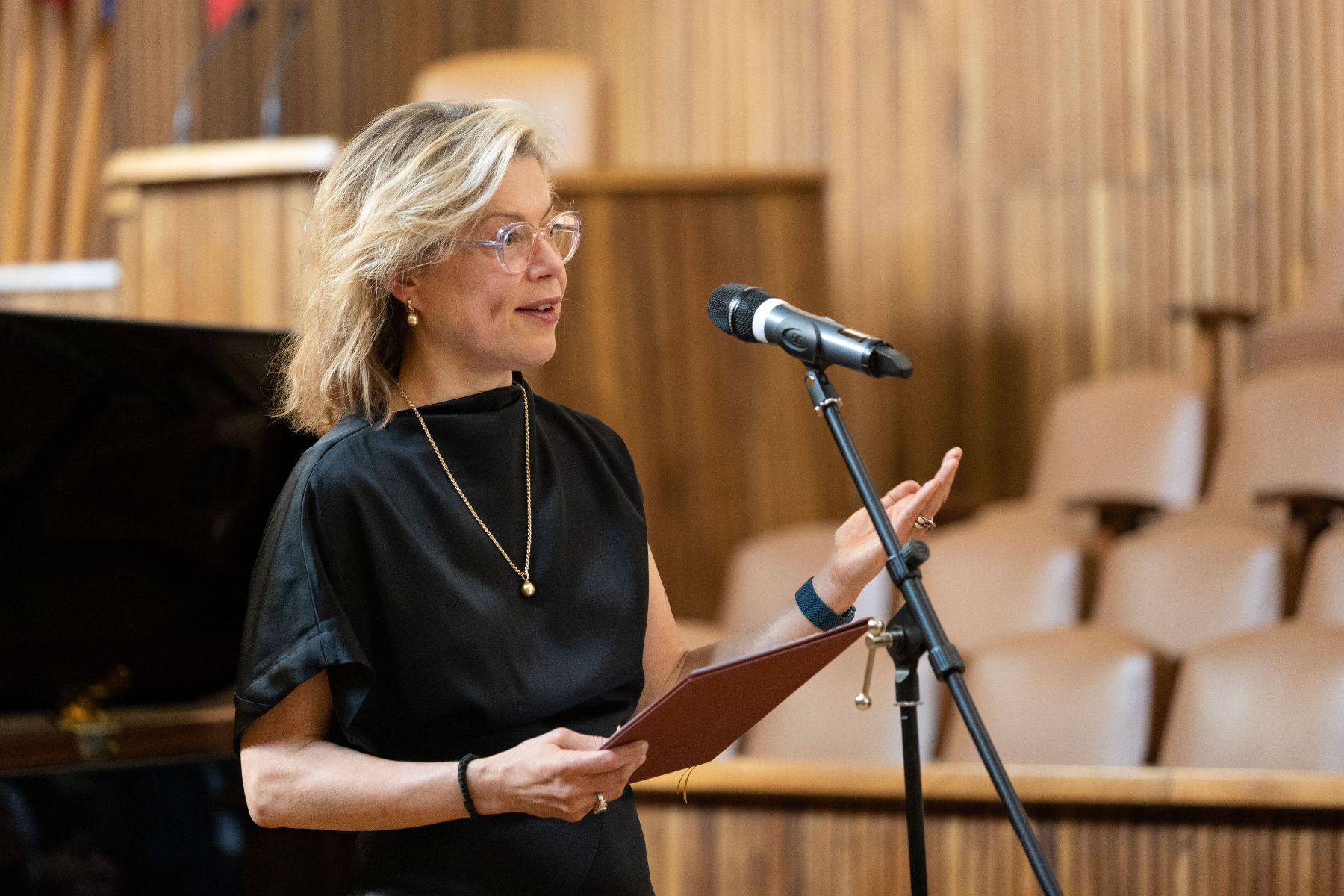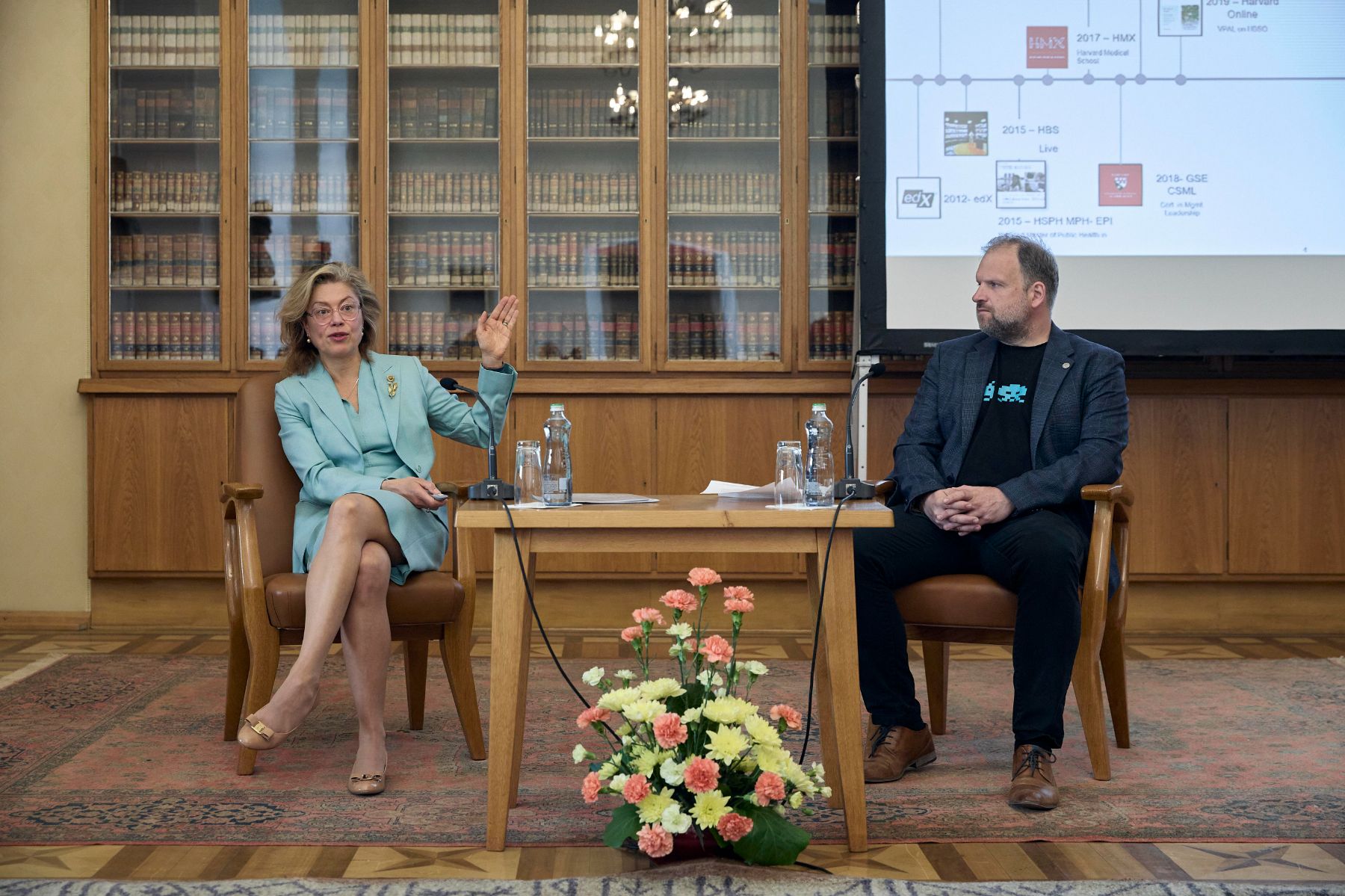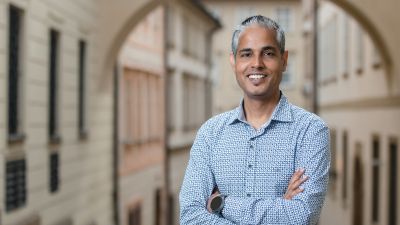“Educational institutions today are different from the past. Universities exist in the public space. You need marketing, fundraising, public affairs and other functions that robustly support the research and teaching mission and the broader university goals. For example many universities have a public affairs office that improves relationships with the government. Or a communications office that allows universities to make the impact of research and teaching clearer. Private Universities in some elements are run like big corporations. This has at times resulted in criticism from faculty who have identified the corporatisation of higher education as a recent issue,” says Klara Jelínková, Vice President and University Chief Information Officer at Harvard.
Since the nineties, you have been living in the USA. What has been the biggest surprise for you during this visit to Prague?
I visit the Czech Republic regularly because my mother and relatives are here, but this is my first official visit to Charles University. Since the nineties when I studied here, everything has changed dramatically. Currently, the management discusses new technological platforms, modern education, internationalisation, fundraising, and other topics that were unimaginable back then. Charles University is working hard to rapidly catch up and exceed its global peers.
It is difficult to compare the Czech and American academic systems, but can you name the biggest difference?
Yes, the systems are different, and it is hard for me to compare. I know one much better than the other… However, what I have understood is that the management works differently. For example, I was impressed that the vice rector for PR at Charles University is a physics professor. In the universities where I worked in the past, administrative functions were usually managed by administrators with training in that specific area. The other difference between private universities and public universities such as Charles University is the Board. In most American private universities, the board created usually has people from private industry (CEOs or company owners), often with a business background. The board is interested in business plans, financial sustainability, public affairs, and so on. They may ask and in some cases challenge “the way we have been doing things” and as such can have a significant impact on the entire organization. Boards can provide a valuable counterbalance to a more traditional academic approach. Some academics are against this and call it "the commercialisation of education," but it can be helpful. It makes universities competitive with others and can help enable them to achieve their goals.
One of the main goals of the new management of Charles University is to "bring the IT system into the 21st century." How should they start? With small adjustments and a facelift or from the ground up?
It really depends on your current situation. The baseline is crucial. You can only do a facelift or incremental improvements if you have a solid foundation. Without a solid foundation, an incremental change is not possible – you have to embrace a transformative change. From what I understand, Charles University's foundation is an outdated custom program that no longer meets people's needs. In that case, a full replacement should be considered.
Do you have any specific recommendations for Charles University?
I would emphasise the importance of the user experience. If people have a bad experience, it doesn't matter how beautiful or new the system is. People have to understand that all the changes are actually helping them.
Sure, for example at Harvard we started to go through what we call “a day in the life”. We have interviewed probably more than 100 faculty members, and have observed close to 300 staff to figure out their day-to-day experience with technology. So when we suggest improvements, they are based on user stories. And then everybody can find their “what's in it for me”, because all the changes were based on their real experience. This approach is based on qualitative research. In our experience, this anthropological or ethnographic approach can be pretty powerful.
What's the time frame of these kinds of changes? I know it's hard to average, but are we talking about months, years?
I'll give you an example. A big system like the alumni development system may take us a total of four to five years to fully roll out. The rollout itself is incremental. Different modules will be implemented in turn. While we are undergoing the change we have to be ready to live simultaneously on two different systems – the old and the new. Another project is the learning experience platform that I talked about today. That project has to be done in three years starting this summer, but again it's rolling incremental releases. Of course, sometimes a modular system is not possible – like a new financial or HR system. That often requires a “big bang” approach when everything goes live largely at once. Often times gradual or modular change is easier for people to accept, because it is slower and the community has more time to adjust.
You mention alumni, the Alumni network and financial support of your alma mater have a long tradition in the USA, but it's quite new in the Czech Republic. How should we motivate Czechs to become proud alumni and to support their university?
The key point is to develop and support an alumni community and realise that the relationship is not just between the student and the university. It is also about the relationship amongst the alumni and all of the friends they made while they were in college. This may be harder for places like Charles University. For example, this week at Harvard is the Alumni Weekend and so we invite all the alumni to come in and engage with each other and the university. For sure some of them want to see Harvard again, but many of them are coming because their friends are coming. Their graduating class is going to be there. So the key question is how do you create this kind of relationship and allow the university to be a platform that nurtures these relationships. And of course, we think about engagement. We invite our important alumni and feature their expertise. We make sure that our alumni remain active members of our community even after they graduate.
Charles University is a public school. How hard is it to make big changes with limited funding?
Every university has bigger ambitions than the resources – it is normal. It is all about priorities. Within a university we are all competing for the same pot of money. So you have two options, you can either make your portion larger at the expense of others or grow the pie benefiting all. This is why we are currently considering investment in our alumni engagement platform. This project can not only improve alumni engagement but also increase fundraising. With additional funds we can do more.
At a high level, every project must have a business case. It has to answer what it is going to do and what is going to be different after the implementation or answering what is the return on investment? We prioritize funding based on the business case. The business case helps explain why and how the money was spent. You have to be a good storyteller and use data and user stories. You have to make a good argument to advocate for the system. As a CIO, I have to be able to tell Harvard why they should invest in technology.
In your opinion, what is the future of education?
The role of universities since our origin has been the creation and dissemination of knowledge. In my view, this should remain the same. At the same time, higher education is under a threat; people are questioning its value. This is why we have to improve our communication and be more inclusive in the dissemination of knowledge. Universities are excellent at writing academic papers and creating the knowledge, but these academic articles are not accessible to the general public. We need to do better so that people understand why our research matters and how it is making a difference in people’s lives.
It is critical that education continues to be trusted by society to do our primary goal – the creation and dissemination of knowledge. As technology evolves, we have to use it to communicate to broader constituencies. We should take the academic paper, translate it into an article that someone, anyone, can read and understand the impact and then use social media such as Twitter to raise awareness of what we discovered. This approach relies on sophisticated marketing, audience segmentation, and targeting the information according to reader’s interests. If people see issues important to them as part of their research agenda they will be more likely to support the university.
New technologies are not just about hardware and software, an important part is people. How do you motivate people to learn and use the new technologies?
This is a hard problem for all of us. Technology evolves very quickly and people can find it hard to keep up. It may seem that the IT department is constantly changing things and in reality we are just trying to keep up with the changes happening in the vendor ecosystem. That can be hard. For specific issues such as cybersecurity we can require training. On other issues we try to motivate people and show them that training can be beneficial and help them do their jobs. We also try to put information at their fingertips. For example, we created a knowledge-base based on frequent questions in our helpdesk.
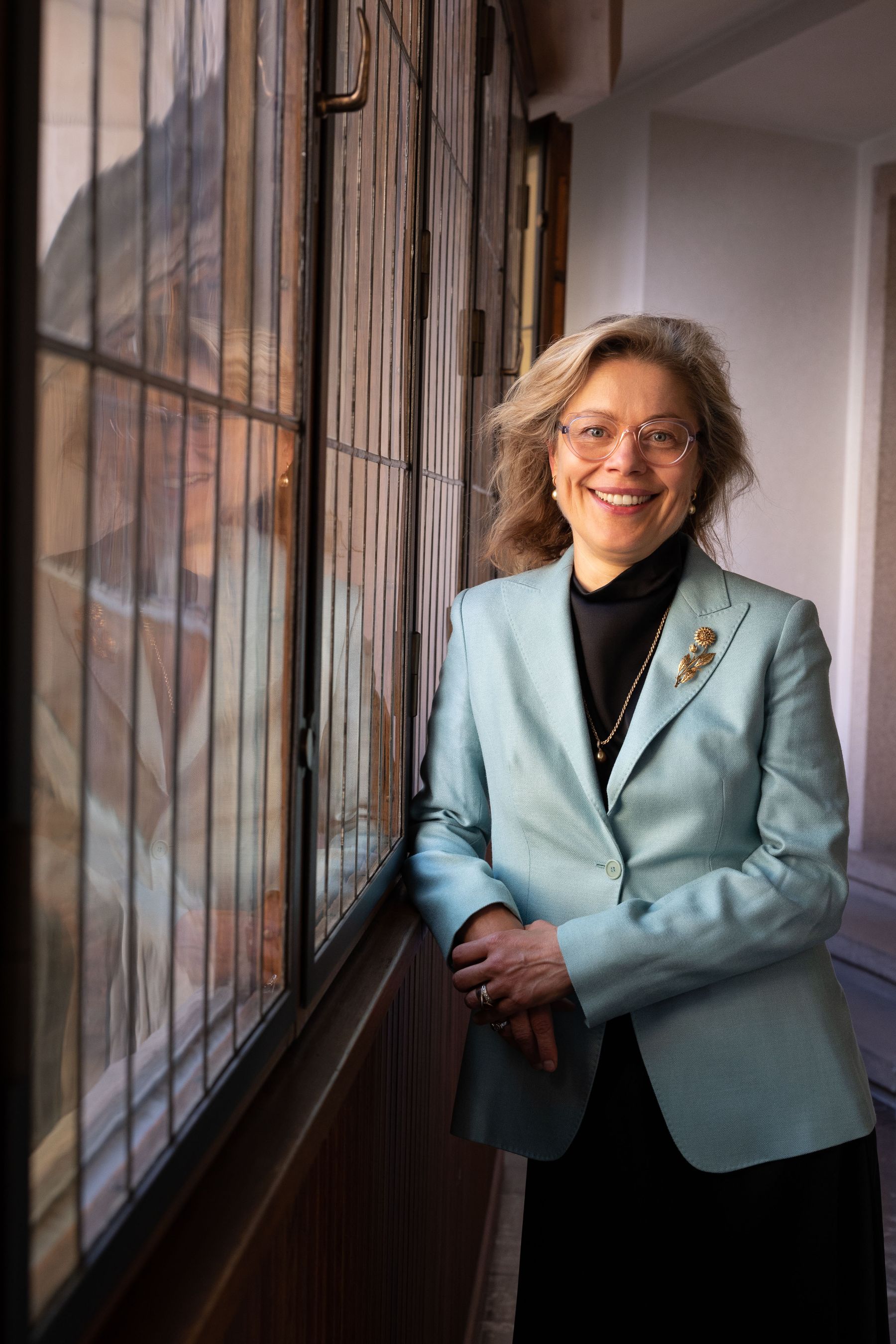 In an interview for Reflex (January 2022) you said you don't have career goals, but you are working for universities which have an interesting task to solve. What would be the next one that you are interested in?
In an interview for Reflex (January 2022) you said you don't have career goals, but you are working for universities which have an interesting task to solve. What would be the next one that you are interested in?
One of the several interesting problems that Harvard is addressing is the question of the “Future of Education”. The report of the taskforce is available online. This question is super interesting and within that question we ask how we can apply technologies and create a better and more inclusive educational experience.
It is hard to tell what the next question may be… But, for example, a question may be: “How do technologies shape society?”. Technology has both an upside and a downside. Let's say as powerful as generative AI is, its power cuts both ways. It can be broadly enabling, all of a sudden you can have doctors aided by AI as an endless and always current reference manual. But it also has a dark side. It can impersonate people and alter people's perceptions. AI also has many ethical questions, such as creating a song in the spirit of another artist or writing your paper for you. All of those are questions that interest me. Many universities are working on these issues but often it is presented as an academic question. In my view it is also an applied science question. There is research that universities are doing, but at the same time if industry practices are not changing by Microsoft, Facebook, Google, and Amazon, etc those ideas will not have the broad impact we need. Finding a solution to bridging research and technology implications could be very interesting.
Would you like to add anything at the end?
As a take home message, I will quote Larry Bacow, Harvard’s outgoing president, who has said: “People pay too much attention to Harvard.” All universities are asking what Harvard, Yale, Princeton, Stanford and Oxford are doing and how can we emulate them? I don’t think that this is the right question. The question is, what can Charles University do that nobody else can. What are the questions that are relevant to the society of the Czech Republic or even Europe and worldwide. Finding the unique angle is key to success as is solving important societally relevant problems. Benefits and prestige come with success in this area. Attempting to copy others will not. As the hockey player [Wayne] Gretzky said: "I skate to where the puck is going to be, not where it has been.”
| Klára Jelínková |
| Graduated in 1990 from the Jan Kepler Gymnasium in Prague, then studied two semesters at the Faculty of Science of Charles University. She earned her bachelor's degree in economics and Slavic languages from the University of Wisconsin-Madison and her master's degree in education from Boston University. She earned her Doctor of Education degree from Johns Hopkins University. She has worked at many prestigious American universities: the University of Wisconsin-Madison (1996–2006), Duke University (2006–2010), the University of Chicago (2010–2015), Rice University (2015–2021) and Harvard University (from 2021 onwards). At Harvard she is responsible for information technology strategy, policies, and services that support the University's teaching, learning, and research mission, and business operations. She also leads Harvard University Information Technology (HUIT), Harvard’s central IT provider that serves more than 50,000 educators, students, and staff. |


